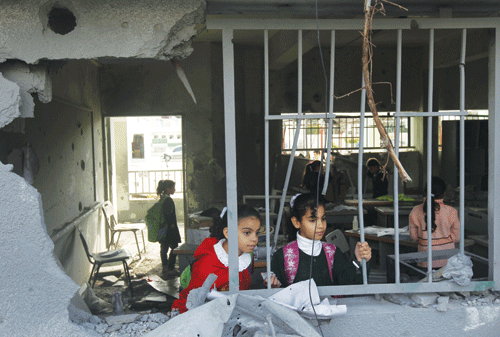Ahmed Moor
Ahmed Moor is a Palestinian-American political commentator and activist who is an outspoken critic of Israel and supporter of the Palestinians. He is the co-editor of the book After Zionism: One State for Israel and Palestine which was published in 2012. Moor is a graduate student of public policy at the Harvard Kennedy School of Government.

